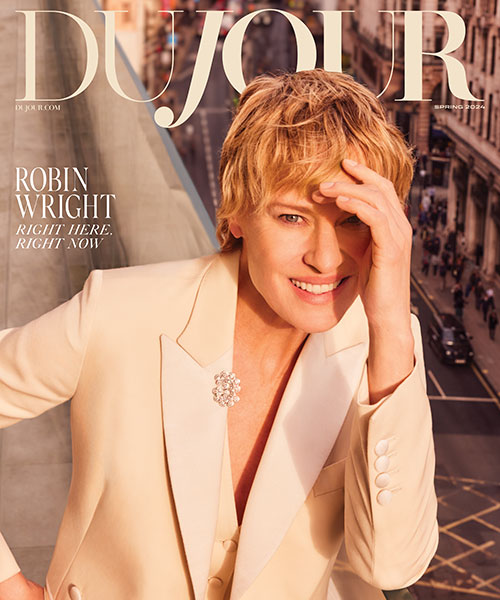The clock is ticking on Cory Booker. At the moment, the mayor of Newark, N.J., is caught between the desk and the door of his office in City Hall, a gold-domed beaux-arts anomaly bracketed by bail-bond offices and a Subway sandwich shop. As he reaches back to grab a sheaf of folders and a Diet Pepsi from his desk, a digital readout across the room counts down the time remaining in his second term: 706 days, 14 hours, 25 minutes, 52 seconds . . . 51 . . . 50 . . .
On this late July morning, Booker is facing more pressing deadlines. The first matter of business is what might be best described as penance.
“We have to schedule the L.A. trip,” he tells aide-decamp Sharon Macklin. “Have to.”
“Okay, but there are conflicts,” she says. “We have to move things around.”
“Work with it, Sharon, okay? Let’s get it done. It’s for the Obamas.”
The mayor’s raised brows and wide-eyed stare underscore the imperative. Booker is still making amends with the White House after his late May appearance on NBC’s Meet the Press, where he said the president’s campaign ads attacking Mitt Romney’s record at Bain Capital were “nauseating to me . . . nauseating to the American public.” But while cross-country fundraising trips are one way to earn back the trust of Obama and his campaign staff, they can be a tricky proposition for Booker, who has just been excoriated in the local newspaper for his out-of-town trips (headline: THE ABSENTEE MAYOR? CORY BOOKER’S ENDLESS TRAVEL SCHEDULE PULLS HIM AWAY FROM NEWARK).
Right now his in-town calendar runneth over. It’s barely 10:30 in the morning, but the mayor is already well behind in a battery of back-to-back appointments. It seems to be a trend for Booker, this trouble sticking to schedules others have set for him. Looming over all that he does is the palpable sense that he has to make a move, that the hourglass is running low on his status as a rising star. “There are plenty of options for him,” says political analyst Dee Dee Myers, who served as White House press secretary under President Bill Clinton. “He could run for the Senate. He could run for governor of New Jersey. If he repairs the damage, he could end up in the second Obama administration.”
Many Democrats in New Jersey and Washington would like to see him run for governor next year against Republican Chris Christie. They worry about him challenging longserving Senator Frank Lautenberg, a Democrat, in 2014, although not as much as the prospect of his staying put for a third term as mayor. “The challenge for Booker is: Does his moment pass at some point?” asks Democratic consultant Jason Ralston, a senior member of President Barack Obama’s media operation in 2008. “An awful lot of people have waited and waited, and by the time it got to be their turn, they were no longer the guy.”
What becomes immediately clear is that Cory Booker moves at his own pace—at once frenetically accelerated and confoundingly, almost stubbornly, deliberate.
After a protracted exit from City Hall—Booker’s departure is interrupted in the corridor by the arrival of crime statistics reports and the need to escort a passing octogenarian to the elevator—the mayor finally settles into the back of his black Chevy Tahoe and grabs a Luna bar from a backseat cache. “There’s never a typical day,” he says. “Planes are a blessing. Six hours of undisturbed reading, writing, thinking, e-mailing. I close my eyes on takeoff for about 10 minutes, then . . . I’m going. My staff hates it because when I land, they each have 50 e-mails.”
In the course of the six-minute drive to the day’s first event, a tour of a proposed redevelopment site, Booker catches up on city business with Adam Zipkin, his deputy mayor for economic development. He asks Zipkin to connect a pastor who runs a reentry program for former inmates with possible employers, and to reach out to New Jersey’s junior senator, Democrat Robert Menendez, regarding legislation that will fast-track a green card for entrepreneurs who invest in job creation. Then they discuss the redevelopment project.
“What’s it waiting on?” Booker asks.
“Rezoning. But it’s done,” Zipkin assures him.
Booker nods in approval, grabs his iPhone, opens Twitter, and starts composing. He’s been uncharacteristically idle since his 7:10 a.m. tweet:
@CoryBooker “Nothing diminishes anxiety faster than action.” Walter Anderson
The Cory Booker brand has been built on action in the form of headline-grabbing, Hollywood-style heroics—comforting a 19-year-old shot in the chest as the young man died in his arms; going on a 10-day hunger strike while a city council member to protest the lack of police presence in the projects; sleeping in a trailer to shame the previous administration into cracking down on the drug trade; and, in April, rescuing a woman from a burning building.

Booker with young constituents
Photo: Courtesy of Newark Press Information Office
Booker grew up in Harrington Park, 20 miles north of Newark geographically, and by most other measures. It was (and is) an affluent community, blessed with good schools and little crime. He was a sci-fi geek, an honor-roll student and, as a high school senior, an all-American tight end. From there, Booker amassed diplomas like X-Men comics: a B.A. in public policy and an M.A. in sociology from Stanford; a degree in history from Oxford, where he studied on a Rhodes Scholarship; and, finally, a J.D. from Yale. After graduating from law school, while his classmates were starting partner-track positions at white-shoe firms, Booker moved into Newark’s notoriously dangerous and dilapidated Brick Towers projects.
He has been a media darling ever since he upset a 16-year incumbent to win a seat on the Newark city council in 1998. Booker’s failed 2002 mayoral bid was the subject of Street Fight, a 2005 Oscar-nominated documentary. When he ran again in 2006, Booker was elected in a landslide. Although he was reelected by a smaller margin in 2010, his favorability rating and name recognition among constituents have climbed throughout his time in office.
Yet Booker’s visibility among Newark’s 277,000 residents can seem almost inconsequential compared to his influence in social media. Since he was introduced to Twitter in 2008 by Sarah Ross, the Silicon Valley executive who launched Ashton Kutcher into the tweetosphere, Booker has amassed more than 1.17 million followers—well behind President Obama, but ahead of Romney and nearly 10 times that of Christie.

With President Obama in 2009 at a rally for then-N.J. Governor Jon Corzine
Photo: Michael Nagle/Getty Images
“It’s critical for mayors to communicate outside of their city,” says Booker. “Cities aren’t hermetically sealed boxes. Depending on how many times you’re retweeted, 10, 20, 30 million people could have a consumer impression on things I’m saying—that’s very important for a guy who’s trying to show the greatness of his city.”
According to Twitter, Cory Booker has more followers than any other U.S. mayor. “It’s a very powerful tool if you’re trying to reignite opportunities for your residents,” he says. Booker uses his Twitter feed for plenty of city business—he publicizes job programs, music festivals and fundraising—and he took to it to mobilize the city during the 2010 blizzard, famously responding to one woman’s tweet by showing up to dig out the home of her grandmother. Beyond his innate PR savvy, much of Booker’s success in mastering social media comes from engaging with the passion and tone of a native user. Take his response to a thread on same-sex marriage: @CoryBooker I’ll fight 4 ur rite 4 religious freedom. When u marry in church b4 God let it b as u want but 4 government let all b equal.
“If there are some in the political sphere that feel social media is frivolity, they’re just behind the curve,” says Myers. “I don’t know that we have figured out how it is going to intersect with politics to promote candidates or causes, but if you are not part of the dialogue or don’t think the dialogue’s important, then you’re gonna miss the boat.” In July, Booker returned from Allen & Company’s Sun Valley Conference, an annual meeting of tech and media moguls, where in 2010 his encounter with Mark Zuckerberg led to the Facebook CEO’s $100 million pledge to Newark public schools. This year, Booker attended as a social-media entrepreneur: He’s one of the cofounders of #Waywire, a video news-sharing site aimed at millennials, whose mission is to promote a dialogue and social values. The New York–based start-up’s investors include Google CEO Eric Schmidt, as well as Booker supporters Oprah Winfrey and Troy Carter, Lady Gaga’s manager and social-media guru.
Nathan Richardson, CEO and cofounder of #Waywire, describes Booker’s job as “inspiration architect”—fitting, given his penchant for rousing oratory. Clearly, there has to be some spark if you hope to switch people’s mindsets from I can has cheezburger? to I can change the world. “I could easily be accused of being a Don Quixote,” Booker admits. “Seriously, I’m a wild idealist, and I think our nation needs more idealists and more poets.”
#Waywire, which launched Aug. 13, ahead of both parties’ conventions, may be coming at the ideal time for Booker: If, as he suggests, his Meet the Press comments were a poorly phrased expression of his belief that we need to elevate the civic discourse, here he is putting his money—in shares held in trust—where his mouth is. “I had the desire to find a way to disrupt what I consider to be wrong with our national conversation, which is very polarized, very enemy-oriented,” Booker says. “Social media can be the cure for that, especially if you elevate and amplify voices that are shut out of our democratic dialogue. You want people to influence the story, make the story.”
If it succeeds, #Waywire has the potential to put Booker at the center of a sizable and politically motivated movement. “There’s a profound change coming, this huge wave of young digital natives who do not consume news and information in the traditional way, who yearn to get their voice heard,” he says. “This is a stream that has the power to break through the arteriosclerosis of our society and create the sort of change we yearn for.” This is quintessential Booker-speak, a blend of soaring rhetoric about political renewal and allusions to clogged arteries. Booker’s speech constantly revolves around weight and food—when he discusses breaking the political bottleneck (“arteriosclerosis”); his sense of obligation (“I eat lavishly from banquet tables that were prepared for me by my ancestors”) and its impact on his desire to serve (“I can metabolize those blessings as fuel for me to fight for America”); his pride in Newark (“You can go through the industries that were started here, including my favorite—M&M’s!”); and his desire to appear genuine in social media (“Be transparent in who you are, from your corny jokes to your midnight cravings for Ben & Jerry’s”).
“I’m literally at my worst health right now; you can write that,” he says. “I crossed a barrier that I’d never crossed before—a certain weight—which I won’t even tell you ’cause it’s embarrassing. I was so grossly overweight, which is total hypocrisy because I’m Michelle Obama’s co-vice chair for the campaign against obesity.”
Booker, a longtime vegetarian, has made his battle of the bulge very public. He has no qualms about admitting to a little personal vanity. “I had an ex-girlfriend who ruined me in terms of my macho, ex-football-player self—she turned me on to mani-pedis,” he says, unabashedly. “Being a public figure, people talk smack about you, so I found this 24-hour mani-pedi place and go in the middle of the night. It’s this guilty pleasure I have. Look, manis are good, but pedis—there’s something…transformative.”
It’s one of the rare indulgences Booker allows himself. At 43, he’s single and lives alone. He abstains from meat and alcohol and considers his greatest vice (ice cream notwithstanding) to be a steady stream of Diet Coke, Coke Zero and Diet Pepsi. Booker struggles to remember the last time he took a true vacation. In December he brought his parents, Carolyn and Cary (also the name of his brother, his only sibling), to Israel but confesses that he spent much of the trip in meetings with political leaders and business and tech moguls. Finally, he admits his last pure pleasure trip was more than three years ago, a 40th-birthday jaunt to the Greek island of Mykonos. Even then he was doing Newark business in a way, reading Philip Roth’s American Pastoral for the first time on the beaches of the Aegean.
Roth had good reason to make his hometown of Newark the backdrop on which to paint a human and urban tragedy. The novel is a eulogy for middle-class utopia before the 1967 riots and the radical madness that ensued, before it all—Newark, our families, our heroes, our whole country—went to shit. “Butchered to death by taxes, corruption, and race…What happened to Newark broke his heart,” the novel’s protagonist, Swede Levov, says, referring to his father’s devotion to Brick City. “It’s the worst city in the world.”
That was a widely held view of Newark in 1997, the year the Pulitzer Prize–winning novel was published and Booker became a community organizer in the city’s Central Ward. Ever since, he has made it his mission to not just change Newark but transform it. Within two years after his becoming mayor, murders had declined by 36 percent. Shootings are down more than 20 percent during his tenure. The NHL’s Devils, the NBA’s Nets and Major League Soccer’s Red Bulls have all come to play in the Newark area. There’s $800 million of new construction under way, and Panasonic is relocating its North American headquarters to a $200 million tower being built downtown. In March, U.K. Prime Minister David Cameron even made a trip to Newark to talk to Booker about local economic development. Never mind that the Nets have since decamped for Brooklyn and that budget concerns forced Booker to trim the city workforce by 1,000—this is progress, if not yet transformation.
Much of it is born from the mayor’s ability to make his oft-maligned city a cause célèbre. On a short drive through Newark, Booker points out the tangible results: A facility for AIDS patients funded in part by Jon Bon Jovi. A residence for mothers in drug recovery and their children (thanks, Oprah). Sustainable housing for veterans (take a bow, Brad Pitt). Then there is Zuckerberg’s $100 million education endowment. And now Booker is talking to musician Alicia Keys about an arts center.
“Most of these folks have really great moral compasses and want to find ways to give back,” he says. “If I get the chance, I just pitch them. It’s a benefit to me to be out there talking, meeting and mixing.”
The more than $300 million in private philanthropy Booker has attracted to Newark has come with a cost, however: a reputation for self-promotion. Booker has been known to take paid speaking engagements—receiving up to $40,000 an appearance—while traveling on behalf of the city. His jaunts to the Hamptons, Sun Valley and Aspen have given rise to accusations that he’s gone Hollywood.
On one hand, what’s good for Booker can be good for Newark. “He’s taken the city to a new level, mainly due to his own visibility,” says Tom Kean, the former Republican governor of New Jersey and, more recently, cochair of the 9/11 Commission. “Very few cities have mayors who can go on The Tonight Show. That’s all helpful to a city like Newark, that’s gotten a lot of black eyes. He’s got not only a national reputation but a good national reputation.”

With friend Oprah Winfrey in 2006
Photo: N.Y. Daily News Via Getty Images
On the other hand, the more time Booker spends in the spotlight, the more he must manage his image at home. After recently spending the day in Philadelphia at an event with Michelle Obama, he made a point of driving around Newark’s Central Ward for hours that night, pressing flesh and taking complaints about bees and requests for speed bumps.
“With almost any constituency, if they think you’ve taken your eye off the ball and are getting distracted by the national political glare or Hollywood, they’ll take it out on you,” Kean cautions. “Whether Cory’s crossed that line or not, I don’t know. But if people feel he has, you’re going to see discontent.”
It’s a peculiar dilemma for a politician whose personal charisma and mastery of publicity has keyed his rise. While Booker did get jolted by the Meet the Press incident, most political observers agree the episode won’t cause lasting damage to the Booker brand, provided he reins himself in.
“One of the things that’s appealing about him is that he doesn’t seem scripted,” says Myers. “He seems like a fresh voice who’s willing to say what he thinks. He’s an instinctual politician, and instinctual politicians make mistakes. Live by the media, die by the media. He is a guy who figured out how to use his platform to be a visible presence, but it’s a bit like wrestling an alligator—lose control of it and it bites you.”
Although Booker shows no signs of giving up his trademark extemporaneous speaking style, he insists he has learned from his Meet the Press experience. The backlash was swift and severe—his words used as a rallying cry by the GOP, his loyalty questioned, Obama campaign sources saying, “He’s dead to us.” It shocked and rattled Booker, who didn’t realize he’d put his perfectly pedicured foot in his mouth until he checked Twitter after leaving the NBC studios. “I saw it blow up,” he recalls. “I got so many great calls from people. My favorite was from [former Pennsylvania governor] Ed Rendell, who said, ‘What you said is right, Cory, but just do me a favor: Never use the word ‘nauseated’ again. Make that your new N-word.’ It was a long week.”
@CoryBooker Many meetings today on econ development. Encouraging progress re: jobs w/big announcements in future. Touring another site w/developers now.
Booker sends this tweet as his SUV pulls up at a massive brick warehouse complex along the banks of the Passaic River. As he exits the car and straightens his blazer, an 18-wheeler passes. If all goes according to plan, Volvos and Range Rovers will replace the tractor-trailers at this 15-acre riverside property, and the warehouses and asphalt lots will become lofts and shops, parks and plazas.
For now, however, it is home to the Betesh Group. Before Booker enters family patriarch Sol Betesh’s office, he kisses the mezuzah in the doorway. Betesh, an 81-year-old silver-haired macher, begins describing his companies, which design and manufacture licensed handbags, diaper bags, infant accessories and other products.
“More than 200 employees, 60 percent Newark residents,” his son Michael chimes in. They recently released a baby-food processor called Baby Brezza; a new model is already in the works.
“It should be perfected by the time I have kids,” Booker says.
“You’re having kids?” asks the elder Betesh, rising to give the mayor a hug.
Booker lifts both palms. Slow down. “I have to find my ishshah first,” he says, dropping the Hebrew word for wife.
In 2010, the Beteshes closed 35,000 square feet of distribution space in New York City and relocated their operations to these warehouses, which they bought in 1991.
“We wanted to be here,” Sol says. “In Newark.”
“Incredible story. Amazing,” says Booker.
Sol and son walk the mayor through their plans. With the administration’s help, they want to move their operation elsewhere in Newark and convert this prime riverside real estate. They show Booker renderings of the residential lofts, storefronts, tree-filled plazas and, of particular importance to Booker and his team, a 40-foot wide promenade along the river.
“This will change the face of Newark,” Sol says.
“I love it. Tenacious,” Booker replies.
As he tours the 450,000 square feet of low-rise brick buildings, Booker greets each employee with a handshake, a hands-pressed namaste or a high-five and the line “Hi, I’m Cory.” The mayor’s aides glance anxiously at their watches. Calls are made to revise his calendar. The advance team peels off for the next event.
Almost an hour into the tour, Booker is looking at photos of the buildings’ state of disrepair, circa 1991. As Zipkin assures the Beteshes the zoning situation is a non-issue, Sol puts his hand on Booker’s shoulder and says, “We want to get a ferry.”
“To Wall Street?”
Michael Betesh nods. “It’d only be 26 minutes from here.”
“If you build it, they will come,” Zipkin says.
“Amen,” Booker says. “We got two years to get this thing built!”
Then the mayor spends another 45 minutes greeting warehouse and loading-dock workers, before giving his personal contact information to the Beteshes. This is the campaign before the campaign, but the question is: Which one?
@JaydaNSW I heard Cory Booker resigned? Is that true????
When the tweet arrives, Booker, sitting in his SUV, quickly retweets it, adding:
@Cory Booker Um I’m “resigned” that false internet rumors spread quickly.
Speculation about his future is rampant and inevitable, but Booker remains cagey, either unwilling or unable to reveal his endgame. “You have to be mission-driven in life. Purpose should always trump position,” he says, echoing sentiments his parents instilled in him. “I just had a conversation with my team about the need to stay focused on why we were elected. There’s a lot of distractions around here as it gets closer to when people are gonna ask me that question—about, you know, the governor’s race.”
In late July, Booker told an audience at a local political meeting in New Jersey that he was “strongly considering” either a run for governor or the Senate. If he decides not to challenge the formidable Chris Christie—with whom he has a strong working relationship—next year, his route to the Senate may be even trickier: Despite the fact he’ll be 90 years old at the time, Lautenberg has given every indication he will run in 2014, and this would force Booker to mount a potentially divisive primary challenge. But there’s also the chance that Booker, who passed on an Obama administration job in 2009, will be offered a position if the president is reelected. But that’s hardly a lock, even without the fallout from Meet the Press.
This leaves Booker in the awkward position of hoping against hope that Mitt Romney gets elected and brings Christie with him to Washington, or that Christie opts not to seek another term.
“I wish, I wish,” Booker says, perking up. “I would consider running for governor, absolutely.”
Then, he quickly catches himself. “But I don’t know if I would do that over staying where I am.”
The signals are surely mixed. In early June, Booker formed CoryPAC, a national political action committee. At present he is using the funds to support Sen. Menendez and other Democrats running for reelection this fall, but he knows that the PAC’s existence only adds to the conjecture.
“Will I run for a higher office against a sitting governor or a senator of my own party? I do not know, and that’s just, actually, a sincere response,” Booker says.
He acknowledges that most mayors have a limited shelf life (10 years, he estimates, or two and a half terms) and that his own opportunities may be nearing their expiration date. “I think the window closes very soon on some of those options, so either I proactively decide,” he says, “or it’ll be a de facto decision.”
It’s possible that, intentionally or not, Booker might let the clock run out. “Fortune tends to favor the bold in politics. If you look at the guys who make it, whether it’s Obama or Marco Rubio making it to the Senate, they took chances,” says Ralston. “Booker is a guy who is bold in his governing style and bold in saving people’s lives and things like that, but he hasn’t been particularly bold in terms of taking on the big race.”
-Please run for higher office, Mr. Booker. Governor? President?
-Amen to that!
-Amen..
-♥ It! ♥
Booker is in the SUV on his iPhone, checking the most recent comments on his Facebook page, responses to an inspirational post of his that concluded with the lines:
Never give up, and you will never be denied
No matter what the challenge, there always is – the other side.
The mayor is late for the next event on his schedule, the groundbreaking for a 350,000-square-foot distribution center being built on a once-polluted site along the Passaic River. By the time Booker arrives, well into the ceremony, a series of speakers have already spoken beneath the open-sided white tent. Behind it lie carefully arranged construction machines, a pile of loose soil and a dozen shiny shovels emblazoned with the date and occasion.
About 80 people on folding chairs sit fanning themselves in the withering heat. As Booker is introduced, he senses the crowd’s flagging energy. “Hello. All right. Welcome to you! Wow. An amazing coalition here—a coalition of those with conviction. This coalition of conviction is why we’re here today…”
He launches into a short, uptempo, off-the-cuff speech: “We have Panasonic moving its headquarters here to Newark, and, as I often say, I don’t care what the rest of America says, the wine capital of America now is not Silicon Valley or Napa Valley or Sonoma; it’s Newark, New Jersey—because we have Manischewitz’s global headquarters! All of these things are signs of a city that is transforming itself, transforming the nation…”
When the mayor finishes to weary applause, he and a handful of state and city officials join the project’s developers beside the freshly turned soil. “Let’s break some ground, people,” Booker shouts. “1-2-3. Everybody pick up your shovels…”
After a few moments and a dozen handshakes, Booker, still in his blazer, scrambles into the cockpit of the backhoe. He fiddles with the shifts until the digger’s bucket curls down to scoop up a load of earth as the TV cameras roll.
Minutes later, Booker slumps in the back of his SUV. He wipes the sweat from his brow with a brown towel he keeps in the car for such moments. As he tweets an Instagram photo of himself operating the backhoe, I ask him if that was part of the script.
Booker shrugs and smiles. “I needed the bigger shovel. I always need a bigger shovel.”

With U.K. Prime Minister David Cameron in Newark in March
Photo: John Moore/Getty Images








































